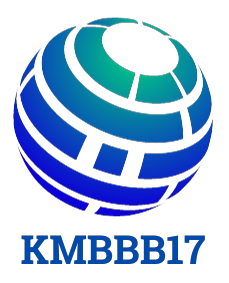In the highly competitive hospitality industry, effectively managing online distribution is crucial for maximizing bookings and revenue. Channel manager software plays a pivotal role in streamlining this process by centralizing and automating the management of multiple booking channels. Here’s how best channelmanager software serves as the key to streamlined online distribution and the benefits it offers to hotels:
1. Centralized Management of Multiple Channels
Unified Dashboard:
– Single Interface: Channel manager software provides a centralized dashboard where hotels can manage all their distribution channels from one place. This eliminates the need to log into multiple OTAs and booking platforms separately.
– Streamlined Operations: The unified interface simplifies the process of updating rates, availability, and reservations, reducing administrative burden and improving efficiency.
Channel Connectivity:
– Broad Network: Connects to a wide range of OTAs, Global Distribution Systems (GDS), and niche booking platforms. This broad connectivity helps hotels reach a diverse audience and increase their online visibility.
2. Real-Time Synchronization
Accurate Availability and Rates:
– Instant Updates: Real-time synchronization ensures that room availability and rates are updated instantly across all connected channels. This prevents overbookings and rate discrepancies.
– Dynamic Pricing: Automated dynamic pricing tools adjust rates based on demand, market conditions, and competitor pricing, helping hotels stay competitive and optimize revenue.
Efficient Inventory Management:
– Automatic Updates: When a booking is made, the software automatically updates availability across all channels, ensuring accurate inventory management and reducing the risk of double bookings.
3. Automated Booking Management
Effortless Reservations:
– Automated Confirmations: Automatically sends booking confirmations and notifications to guests. This improves communication and enhances the guest experience.
– Centralized Reservation Handling: Manages reservations from all channels in a single system, reducing manual data entry and minimizing errors.
Integration with Property Management Systems (PMS):
– Seamless Data Flow: Integrates with PMS to synchronize booking data, guest information, and payment details. This ensures that all systems are up-to-date and reduces the need for manual data entry.
4. Enhanced Reporting and Analytics
Data-Driven Insights:
– Comprehensive Reports: Provides detailed reports on booking trends, channel performance, and revenue metrics. These insights help hotels make informed decisions and optimize their distribution strategy.
– Performance Tracking: Monitors the performance of different booking channels, allowing hotels to identify which channels are most effective and adjust their strategy accordingly.
Revenue Optimization:
– Forecasting Tools: Analyzes booking patterns and market conditions to help hotels forecast demand and adjust pricing strategies for maximum revenue.
5. Improved Efficiency and Reduced Errors
Automated Processes:
– Minimized Manual Work: Automation reduces the need for manual updates and data entry, freeing up staff time for other tasks and reducing the risk of human error.
– Consistent Information: Ensures that availability, rates, and booking information are consistently accurate across all channels.
Enhanced Operational Workflow:
– Streamlined Tasks: Simplifies various tasks such as updating rates, managing reservations, and generating reports, leading to more efficient operations.
6. Better Guest Experience
Timely Communication:
– Automated Messaging: Sends timely and consistent communications to guests, including booking confirmations, pre-arrival information, and post-departure follow-ups.
– Personalized Interactions: Automated guest communication tools can be customized to enhance the guest experience and foster better relationships.
Enhanced Booking Experience:
– Accurate Availability: Ensures that guests see real-time availability and accurate rates, leading to a smoother booking process and reducing frustration.
Choosing the Right Channel Manager Software
1. Integration Capabilities:
– Ensure the software integrates with your existing PMS, booking engine, and other operational systems for seamless data flow and efficiency.
2. Feature Set:
– Look for features such as real-time synchronization, dynamic pricing, automated reporting, and guest communication tools that match your hotel’s needs.
3. Ease of Use:
– Choose a platform with a user-friendly interface that simplifies management and reduces the learning curve for your staff.
4. Scalability:
– Opt for a solution that can scale with your hotel’s growth, offering additional features and channels as needed.
5. Customer Support:
– Evaluate the level of customer support and training provided to ensure you can effectively use the software and address any issues that arise.
Conclusion
Channel manager software is essential for hotels seeking to streamline their online distribution and enhance operational efficiency. By centralizing management, automating processes, and providing real-time synchronization, these solutions help hotels maximize bookings, optimize revenue, and improve the guest experience. Investing in the right channel manager software can lead to significant operational improvements, better performance tracking, and a competitive edge in the hospitality industry.
